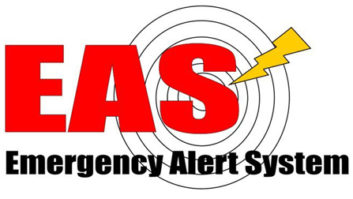The frequency and breadth of EAS alert testing on SiriusXM radio will change following an FCC order. The commission decided that Satellite Digital Audio Radio Service (SDARS) and Direct Broadcast Satellite (DBS) services are sufficiently similar in function and technology that their testing requirements should match.
Specifically, the new testing requirements require SiriusXM to log receipt of weekly test of EAS alerts and to transmit a monthly test on 10% of all of its channels, varying which channels are tested month to month so all channels are tested throughout the year.
This change has its roots in an EAS First Report and Order filed in 2005 that extended EAS alert testing requirements for satellite radio. SiriusXM filed a petition that same year, arguing that proposed requirements for weekly and monthly EAS tests on all of its channels would “mislead subscribers to believe that satellite radio operators transmit state and local EAS alerts on all channels,” rather than just on previously identified XM Instant Traffic, Weather & Alert channels. Sirius instead asked that those monthly and weekly tests only occur on the traffic, weather and alert channels.
Sirius later made an ex parte filing in 2014 arguing that circumstances had changed since its petition, and that the EAS testing rules for SDARS providers should be similar to that of DBS. It said the weekly and monthly tests had “imposed an excessive, disproportionate and unnecessary burden on SiriusXM and its subscribers.” It also cited that its breaks are not uniform across all of its channels, making it difficult to naturally insert a time for a wide-ranging test.
Following additional filings and public notices in 2017 and 2018, the FCC has concluded that it is appropriate to make SDARS rules for EAS testing comparable to those for DBS and in the public interest.
Read the full FCC order here.
[Subscribe to our newsletter and get it delivered right to your inbox.]









